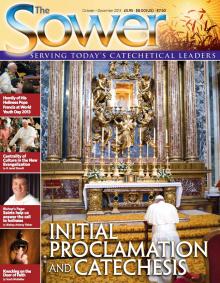The number of words in our ordinary language which date from the Catholic culture of mediaeval Europe is far greater than many of us realise. They remind us of a time when the whole culture was Eucharistic, centred around the culture of the Mass. Going back to the original meanings of words from that time can be very enlightening for us and can help us in the rebuilding of an authentic Catholic culture.
The word ‘holiday’ is one of the most obvious words we still use today, which stems from the words ‘Holy day’. The notion of a holy day goes back, of course, to the commandment, ‘Observe the Sabbath day, to keep it holy’ (Deut 5:12). And again, ‘The seventh day is a Sabbath of solemn rest, holy to the Lord’ (Ex 31:15). In addition to Sundays, the great events in Christ’s life, as well as saints’ days, mark the Holy days of the Church. During Christendom, these were the days when the baptised ceased from work, went to Mass and feasted together. After the Reformation, when ‘Holy days’ were no longer kept in this way and the Mass was no longer celebrated, people still wanted ‘holi-days’ and celebrations and the two words remained in the culture, but largely emptied of their liturgical and Eucharistic meanings.
The rest of this online article is available for current Guild members.
This article is from The Sower and may be copied for catechetical purposes only. It may not be reprinted in another published work without the permission of Maryvale Institute. Contact [email protected]

















